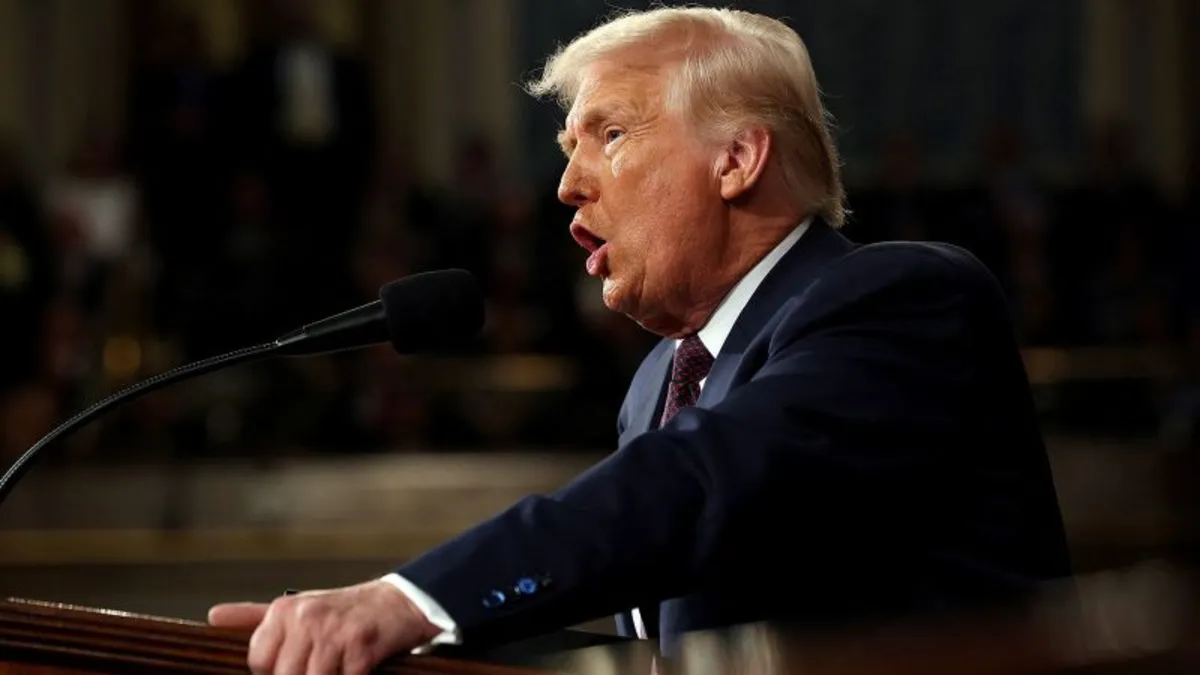
In a bold and controversial statement, US President Donald Trump declared a “last warning” to Hamas, demanding the immediate release of all hostages held in Gaza. This warning came just hours after the White House confirmed that it was engaging in direct negotiations with the militant group. Trump's message, shared on Truth Social, emphasized the urgency of the situation: “Release all of the hostages now, not later, and immediately return all of the dead bodies of the people you murdered, or it is OVER for you.”
The timing of Trump's remarks is significant, as they followed his meeting with eight recently freed hostages at the White House. Trump promised to provide Israel with “everything it needs to finish the job” and issued a stark warning: “Not a single Hamas member will be safe if you don’t do as I say.” This statement marks a notable shift in US policy, as the government has traditionally refrained from negotiating with groups classified as terrorist organizations. The United States designated Hamas as a Foreign Terrorist Organization in 1997, and while there have been exceptions, such as negotiations with the Taliban, direct talks with Hamas represent a significant departure from established protocols.
During a press briefing, White House press secretary Karoline Leavitt addressed questions regarding the unprecedented negotiations with Hamas. She clarified that the special envoy engaged in these discussions, Adam Boehler, has the authority to communicate with any party. Leavitt emphasized that Israel was consulted about these negotiations, highlighting the administration's commitment to pursuing what it believes is in the best interest of the American people. “Look, dialogue and talking to people around the world to do what’s in the best interest of the American people is something that the president has proven is a good faith effort,” she stated.
The Israeli Prime Minister’s Office has expressed its stance on the direct talks with Hamas, though the specifics of their position remain unclear. Reports suggest that Israel was aware of the negotiations, but it is uncertain whether they had prior knowledge of the details. A senior Israeli diplomat, Ofir Akunis, commented on the talks during an interview, stating, “Instead of putting Israel under pressure, President Trump is putting Hamas under pressure and this is the right thing to do.” He indicated that if the White House's engagement with Hamas results in the release of more hostages, it would be welcomed by Israel.
In his social media post, Trump didn’t just address Hamas; he also reached out directly to the people of Gaza. He suggested that “a beautiful future awaits” them, but warned that their future is at stake if they continue to hold hostages. “If you do, you are DEAD! Make a SMART decision. RELEASE THE HOSTAGES NOW, OR THERE WILL BE HELL TO PAY LATER!” he urged. This message underscores Trump’s belief in the potential of Gaza, which he has previously referred to as a “big real estate site” with the potential to become the “Riviera of the Middle East.”
In response to Trump’s remarks, Hamas warned that his statements could jeopardize the ongoing ceasefire and hostage negotiations. Hamas spokesperson Hazem Qassem stated that Trump’s comments would “complicate matters regarding the ceasefire agreement” and may embolden the Israeli government to avoid fulfilling its commitments. Qassem claimed that Hamas had met its obligations under the US-brokered agreement’s first phase and criticized Israel for not progressing to the second phase of negotiations. He called on the US to exert pressure on Israel to adhere to the agreement.
As the situation evolves, the implications of Trump's ultimatum and the ongoing negotiations will be closely monitored, particularly as humanitarian aid into Gaza remains a contentious issue amid the ongoing conflict.